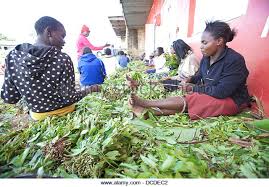Meru District is in Tigania East with a population of 136,000. 90% live in rural areas with HIV/AIDs prevalent in the region. Meru Women’s Garden Project will support some of the poorest women-led households in Kenya, and is entirely focussed on providing opportunities to women and girls who may never otherwise be given the chance to earn an income, and gives them status within their community. It fully embraces the three key areas at the heart of SIGBI’s Programme Focus Goals – Educate, Empower and Enable. Improved food production and education will support women and girls to transform their lives and those of others through a process of cascade learning and mentoring thereby reducing poverty, improving health and increasing employment.
 The following data gives a clear indication of the need for this project:
The following data gives a clear indication of the need for this project:
•41% of women and girls are grossly or borderline malnourished
•43% live below the poverty line of £1 per day, with more in rural areas
•55% live a hand to mouth existence in agriculture using methods which degrade the land
•93% use local trees for firewood, impacting hugely on deforestation
•22% have no formal education
•11% complete secondary education
•8% achieve minimum levels for literacy compared to 85% in Nairobi
•9% achieve minimum levels for numeracy compared to 87% in Nairobi
Meru Womens Garden Project 2016 2019The Project aims to:
Educate women to increase their knowledge and skills so that they can use the most efficient, organic methods for food production to:
•reduce extreme hunger by becoming self-sufficient with sustainable gardens at home
•improve girls’ attendance and achievement in secondary school by creating breakfast clubs and sustainable food gardens, so that they are not hungry and are better able to learn
Empower women through education to find a voice within their community to:
•raise their standard of living above the poverty line
•gain the respect of elders and others, achieve equal representation and take on more prominent roles
•create productive and decent employment by engaging women and girls with leadership skills to take on training and mentoring roles
Enable women leading a household to create their own employment through growing and selling their crops, or as tutors and mentors to:

